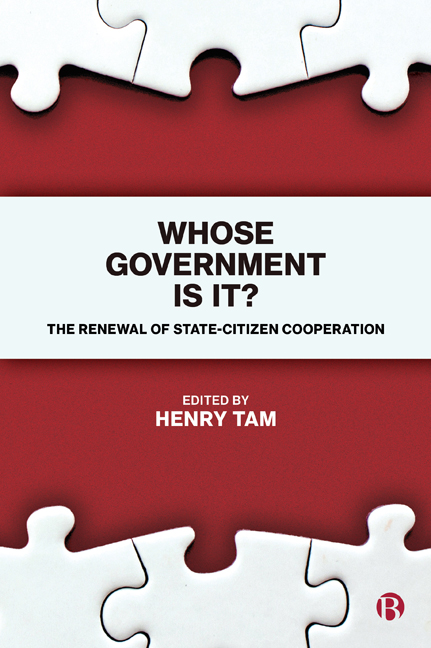15 - The Renewal of State−Citizen Cooperation
Published online by Cambridge University Press: 27 April 2022
Summary
When the gap widens between those who have the power to rule and the people they are meant to serve, it becomes ever more likely that the errors of the former will persist, while their prejudices will remain unchallenged. And their abuse of power will seldom, if ever, be overturned. Even those with benign intentions may end up pushing misconceived policies as no one is in a position to secure a change of direction. As for those who have primarily taken power to advance their private gains, the less the population at large can hold them to account, the more they will treat them with disdain.
Democracy is the endeavour to close this gap until the state and its citizens can share the power and responsibility of governing in a spirit of cooperation. Different people may have the best or worst of motives in seeking political power, but if what they actually plan to do is not to go against the public interest, there has to be effective means for that interest to manifest itself and shape the design of government policies (Derber, 2017; Tam, 2018a).
As the contributors to this book have shown, attempts to rely on periodic elections, quasi-market mechanisms, or leaving communities to deal with problems while radically cutting state support have failed to halt the expanding gulf between government institutions and the public. Distrust has soared. Discord has intensified. The political ambitions of a few have managed to sow seeds of confusion that undermine economic stability and threaten community relations. The polarisation between a wealthy elite who can buy control of most things in life, and an insecure majority of the population is also damaging for people's physical and mental wellbeing (Wilkinson and Pickett, 2018).
But there is an alternative. If we put aside abstract assumptions about how human beings must be inherently self-centred, or could not be motivated to work with others to steer collective mechanisms for their common good, we would see in reality that there are plenty of examples of people cooperating to devise and deploy better public solutions. No one is claiming that such cooperation can always be brought forth with ease, or that it can be sustained without having to reconcile strong emotions and overcome the resistance of those who seek to divide and rule.
- Type
- Chapter
- Information
- Whose Government Is It?The Renewal of State-Citizen Cooperation, pp. 247 - 262Publisher: Bristol University PressPrint publication year: 2019

